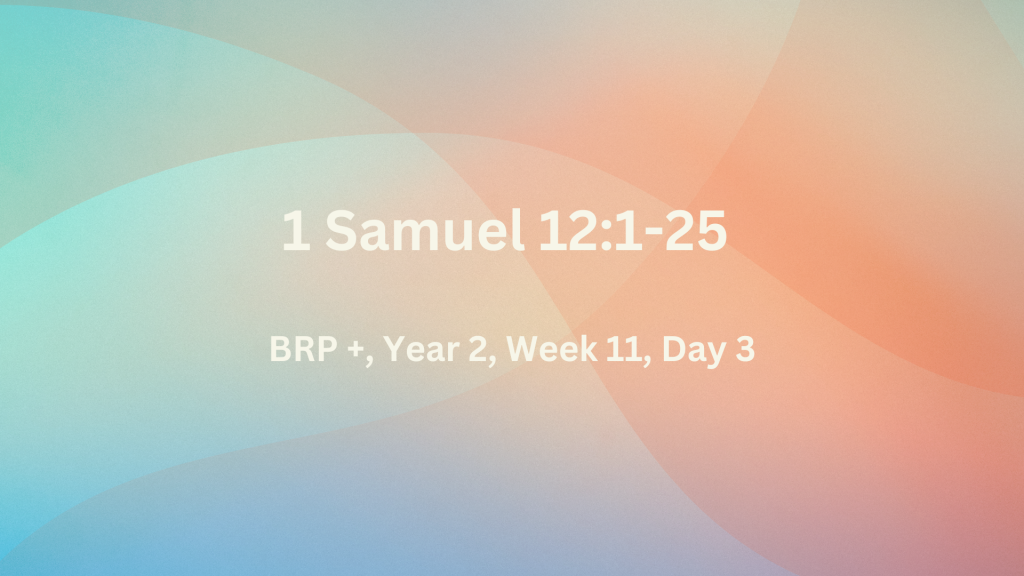1 Samuel 12:1-25
Q.1. How did Samuel want the people to remember his priestly service? What point was he making by tracing the history of Israel? From where did he get his facts? Was God faithful to His people? – (1 Sam.12:1-11)
As did Paul with the Ephesian elders, Samuel wanted the people to remember his faithfulness to God – Here I am. Bear witness against me before the Lord and His anointed. Whose ox have I taken, or whose donkey have I taken, or whom have I defrauded? Whom have I oppressed, or from whose hand have I taken a bribe to blind my eyes with it? I will restore it to you (1 Sam.12:3 c.f. Acts 20:20-21, 26-27). He traced the history of God’s dealing with Israel, to underscore – all the righteous acts of the Lord which He did for you and your fathers (1 Sam.12:7), in spite of the nation’s rebellion. The priests were educated men who had to dispense the Word of God. Samuel reminded them that when their forefathers repented, the Lord sent them deliverers (1 Sam.12:8-11).
Q.2. Who was to be Israel’s king? What options did Samuel place before the nation? How was Samuel’s explanation confirmed to Israel? What impact did the sign have on the people? – (1 Sam.12:12-18)
Samuel particularly reminded them of the provocative demands of King Nahash of Ammon against the city of Jabesh-gilead (1 Sam.11:1-2). Though the Lord their God was to be their king, He had used Saul to strike down the Ammonite army, as God had done with previous leaders (1 Sam.12:12 c.f. 1 Sam.11:11). Samuel then presented Saul – … here is the king whom you have chosen, whom you have asked for, and behold, the Lord has set a king over you (1 Sam.12:13). Samuel then laid down the principle of blessing – If you will fear the Lord and serve Him and listen to His voice and not rebel against the command of the Lord, then both you and also the king who reigns over you will follow the Lord your God (1 Sam.12:14). The day was solemnized by the Lord with a miracle at harvest time, when – Samuel called to the Lord, and the Lord sent thunder and rain that day; and all the people greatly feared the Lord and Samuel (1 Sam.12:18).
Q.3. How great was the impact of the thunder and rain? What promise did God pass on through Samuel? What did Samuel resolve to do for the people? What was his final challenge? – (1 Sam.12:19-25)
The thunder and rain must have been extraordinary, because the people cried out to Samuel – … Pray for your servants to the Lord your God, so that we may not die, for we have added to all our sins this evil by asking for ourselves a king (1 Sam.12:19). Samuel responded by re-issuing the call to a heart obedience from God’s people (1 Sam.12:20-21). He then gave two promises: the first from God – the Lord will not abandon His people on account of His great name, because the Lord has been pleased to make you a people for Himself (1 Sam.12:22). He then gave his own promise – as for me, far be it from me that I should sin against the Lord by ceasing to pray for you; but I will instruct you in the good and right way (1 Sam.12:23). This is foundational for all leaders – to intercede, and to proclaim the truth. He again urged them to fear the Lord, and not act wickedly, lest they be swept away (1 Sam.12:24-25). In time the whole nation would be taken into captivity again.

